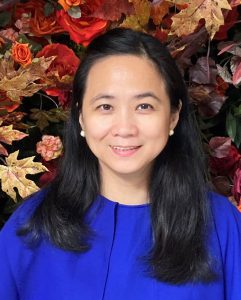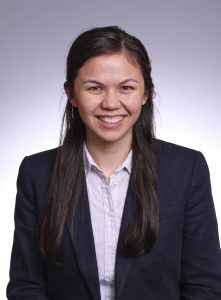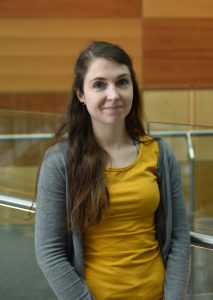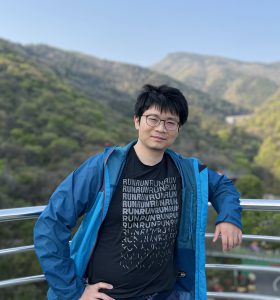Congratulations to the second round of winners of the 22/23 King’s Outstanding Thesis Prize!
Each year a limited number of awards are given to celebrate truly outstanding research and theses completed by King’s doctoral students. The prizes are nominated by the external examiners and are judged by a panel consisting of the College’s Director of Research Talent and the Chair of the Research Degrees Examinations Board. There are two rounds, in January and June, and these are the winners from the second round in June 2023.
Meet our winners:
Dr Jonathan Powell, Faculty of Arts and Humanities
I am delighted and very grateful to have received this award, which would not have been possible without the support and kindness of some extraordinary people. In particular, the brilliance, patience, and guidance of my supervisor, Prof. Lucy Munro, was instrumental to the researching and writing of a thesis that looks very different to its original conception. My time at King’s has been backdropped – and to a large extent defined – by my work for the Centre for Early Modern Studies (CEMS), and I am grateful, too, to centre directors past and present for their trust and advice over the past four years. I am especially indebted to Dr Hannah Murphy, under whom it has been a privilege to learn and who has shaped my thinking in myriad ways. Thanks are also due to the Institute of Historical Research for their award of a doctoral fellowship, and to King’s more generally for the opportunity to pursue this research.
My thesis proposed a new approach to early modern English theatrical history through the legal record, resulting in new understandings of how common law shaped theatrical consciousness during a period of extraordinary and still unsurpassed litigiousness. Key to this work was close readings of hundreds of Latin entries in the plea rolls of the common law court of King’s Bench, with a particular interest in the voices and experiences of many previously invisible women connected to England’s first commercial theatres. I have been fortunate enough to continue developing this aspect of my work through a pair of postdoctoral research fellowships: the first, a three-month position on the Leverhulme Trust-funded project ‘Engendering the Stage: The Records of Early Modern Performance’ (jointly based at King’s and the University of Roehampton), and now at Leiden University in the Netherlands, where I’m part of the ERC-funded FEATHERS project investigating early modern manuscript culture and the mediation of authorship.
Dr Cathleen Hagemann, Faculty of Dentistry, Oral and Craniofacial studies
I studied biology at the University of Bonn and discovered my fascination with the brain and its intricate functions. To deepen my understanding, I continued my studies at the
University of Tübingen, specializing in cellular and molecular neuroscience. During this time, my focus was on the molecular composition of the neuronal cytoskeleton, utilizing super-resolution microscopy and click-chemistry techniques.
I was fortunate to join Andrea Serio’s lab for my PhD, where I applied bioengineering methods to model the relationship between cell shape and function in vitro, with a specific emphasis on neurons. Our primary goal was to create a platform enabling us to investigate how neurons adapt to varying axon lengths. By using this platform, we were able to uncover significant changes in biological processes that occur with an increase in axonal length. Notably, we found that homeostasis and metabolic processes undergo significant alterations when comparing 1cm long axons to shorter ones measuring 3mm in length. We were happy to share our findings by publishing this work in Advanced Healthcare Materials. Outside of my PhD research, I thoroughly enjoyed supervising students through the in2 science program, aiming to inspire others about the fascinating intersection between engineering and biology.
Currently, I am actively using our platform to delve deeper into the intricacies and communication processes within neurons. Simultaneously, we are working on developing protocols that would enable biologists, even those without prior bioengineering knowledge, to utilize bioengineering tools. Our hope is that this effort will contribute to making cell culture-friendly devices more accessible to everyone, allowing for modifications and creations in this field.
Dr Emma Williams, Faculty of Life Sciences and Medicine
 I qualified from University College London Medical School in 2013 and subsequently entered into a paediatric training programme in South London. Throughout my clinical training I developed a strong interest within the field of neonatal pulmonology which led me to undertake a PhD in neonatal respiratory physiology at King’s College London. My
I qualified from University College London Medical School in 2013 and subsequently entered into a paediatric training programme in South London. Throughout my clinical training I developed a strong interest within the field of neonatal pulmonology which led me to undertake a PhD in neonatal respiratory physiology at King’s College London. My
research focused on newborn lung disease including the novel use of non-invasive monitoring techniques, pulmonary mechanics, and predictive models of bronchopulmonary dysplasia. It was an honour to be awarded the Bengt Roberston award by the European Society for Paediatric Research (ESPR) in 2020 for research concerning the neonatal lung, and I was recently elected as a junior council member onto the ESPR pulmonology board.
As a clinician I remain determined to improve the clinical outcomes of newborn infants by combining my passion of academia with clinical medicine. I am currently undertaking a neonatal fellowship in Canada at The Hospital for Sick Children, Toronto – expanding my clinical experience, forming research collaborations, and gaining an international perspective on healthcare. It was a huge privilege to be awarded a King’s Outstanding Thesis Award and I would like to thank my supervisors (Professor Anne Greenough & Professor Theodore Dassios) for all their support throughout this journey, without whom none of this would have been possible.
Dr Luo Li, Faculty of Law
I am Luo Li, and have acquired my PhD degree this spring from School of Law, King’s College London. Before I came to King’s, I studied law for many years in China and acquired the PhD degree in Wuhan University, China. Thanks to my strong interest in legal research, I chose to continue my study in King’s since Oct, 2018. With Professor Ozlem Gurses’ patient guidance during these four and a half years, I made deep research into the topic of how the assured can be remedied for the insurer’s late payment by Section 13A of Insurance Act 2015. I also published two relevant papers, “Compound interest for late payment of the indemnity insurance claim” in British Insurance Law Association Journal, (2001) Issue 134 and “Reconsidering the reinsured’s damages and costs for late payment: a comparative analysis between English and American law” in Business Law Review, (2022) Issue 6. Now I have gone back to China and worked as an associate professor in Law School of Central China Normal University.
Dr Julia Griem, Institute of Psychiatry, Psychology and Neuroscience
It’s an honour to be awarded this prize and to have my doctoral work recognised by King’s College London. Thank you to everyone involved! I greatly enjoyed my time.
I studied Psychology (BSc, Royal Holloway) and Clinical Neuroscience (MSc, University College London) and was always planning to complete a PhD. This meant I spent valuable years before my PhD working as a research assistant – time I’d advise anybody wanting to complete a PhD to take! The RA work triggered my curiosity to study what is going on in the brains of people with personality disorders, and through the support of my colleague Dr John Tully, my supervisors Prof Nigel Blackwood and Prof Declan Murphy, and my funders the NIHR Maudsley BRC, I was able to pursue this for my PhD. I investigated the brain structure and function, as well as the impact of oxytocin, in males with a history of violent offending and antisocial personality disorder or psychopathy. I received the “Best Presentation” honourable mention award at the international congress of the Society for the Scientific Study of Psychopathy for parts of my PhD research.
I was also awarded funding to conduct some patient and public involvement work. Together with 2 colleagues, we spoke to individuals in probation, prison, as well as medium- and high-secure forensic hospitals with the goal to break down barriers between academia and the criminal justice system. This was very informative for future research planning and helped us understand what people with lived experience want more understanding about. A summary of this work can be found here.
I am now working as a postdoctoral research fellow at University College London, studying the computational behavioural and neurobiological features of borderline personality disorder and mood disorders.
Dr Jessica Mundy, Institute of Psychiatry, Psychology and Neuroscience
 I am delighted and grateful to be awarded an Outstanding Doctoral Thesis Prize. I would like to thank my examiners for nominating me, my supervisors for their support throughout my time at the Social, Genetic, and Developmental Psychiatry (SGDP) Centre, and the Lord Leverhulme Trust who funded my research.
I am delighted and grateful to be awarded an Outstanding Doctoral Thesis Prize. I would like to thank my examiners for nominating me, my supervisors for their support throughout my time at the Social, Genetic, and Developmental Psychiatry (SGDP) Centre, and the Lord Leverhulme Trust who funded my research.
Prior to starting the PhD, I studied Human Sciences at Oxford University. This is where my interest in population genetics began. As part of the 1+3 PhD, I completed the MSc in Genes, Environment, and Development in Psychology and Psychiatry, which paired research methods in statistical genetics with the study of psychopathology. My PhD thesis explored how we can use self-reported data to improve the phenotypes used in genome-wide association studies of mood disorders.
A highlight of my PhD was working with Helena Davies to set up a study that investigated how we can educate people with mental health disorders about genetic and environmental risk factors, which is an area close to my heart. Other highlights included teaching MSc students to use R for statistics and presenting at conferences/seminars. Finally, it was a brilliant experience to be part of the SGDP’s Anti-Racism Working Group, which includes some truly inspiring people who do such valuable work for the SGDP community and beyond.
After leaving King’s, I started as a post-doc at the Department for Clinical Medicine at Aarhus University, Denmark. Here, I research how we can use polygenic scores to predict clinical outcomes in people with major depressive disorder. I also research the issue of genetic confounding in epidemiological studies. Once I have finished my position in Aarhus, I will be joining a team at the London School of Hygiene and Tropical Medicine who research child and adolescent mental health in the UK.
Dr Mary Tanay, Faculty of Nursing, Midwifery and Palliative Care
I am extremely honoured to have been awarded an outstanding thesis prize for my PhD in Nursing. This achievement would not have been possible without the motivation and support from my supervisors Prof Glenn Robert, Prof Jo Armes, Prof Anne Marie Rafferty, and Prof Rona Moss-Morris. I am grateful to the National Institute for Health and Care Research for awarding me a Doctoral Research Fellowship, and to all patient and clinician participants who contributed to the success of my research.
Doctoral Research Fellowship, and to all patient and clinician participants who contributed to the success of my research.
My background as a cancer nurse significantly influenced my interest in chemotherapy-induced peripheral neuropathy (CIPN). Prior to my PhD, I have explored the lived experiences of patients and the negative impact of CIPN symptoms on their quality of life particularly after cancer treatment. This greater understanding of CIPN motivated me to undertake research aimed at improving patient experience.
A self-regulation model of CIPN was developed through my research. The model illustrates the complex processes involved in experiences of CIPN and ways to address this condition. By working with patients and clinicians, we co-designed a behavioural intervention for patients to help them self-monitor CIPN symptoms, communicate and report symptoms to clinicians early and participate in making chemotherapy dose modification decisions with their clinicians. The intervention also supports patients to engage in self-management and safety strategies to reduce the impact of symptoms.
Since finishing my PhD, I have been working on the feasibility randomised controlled trial of the intervention which is ongoing. I have also been invited to present my research in various local, national, and international conferences. I continue to work with the scientific community networks I have made links with during my PhD. Currently, I am a Lecturer at the Faculty of Nursing, Midwifery and Palliative Care of King’s College London and President -Elect of the United Kingdom Oncology Nursing Association.
Dr Hui Huang, Faculty of Social Sciences and Public Policy
 It is really my honour to get my work recognised by King’s Outstanding Thesis Prize. This achievement can’t be made without the endless support from my supervisor Dr Ye Liu and Pro. Jelke Boesten throughout my PhD journey. I also want to deliver my gratitude to my examiners Pro. Yawen Lei and Dr Nana Zhang.
It is really my honour to get my work recognised by King’s Outstanding Thesis Prize. This achievement can’t be made without the endless support from my supervisor Dr Ye Liu and Pro. Jelke Boesten throughout my PhD journey. I also want to deliver my gratitude to my examiners Pro. Yawen Lei and Dr Nana Zhang.
Prior to commencing a PhD at King’s Department of International Development, I got a master degree in University College London majoring Development Administration and Planning. My PHD thesis, entitled “The Algorithmic Antagonism: The Digital Contested Terrain of Control and Resistance in China’s Platform Economy”, which examines how the digital technology reshapes the capital-labour relations in the new digital workplace in China’s context. For this, I did almost one-year ethnographic research through working as a food-delivery driver in a famous food-delivery company. Due to this in-depth participatory study, my work was published in prestigious journals like Journal of Contemporary China, Journal of Contemporary Asia, and New Technology, Work and Employment. The research findings were also quoted in famous media includes Wired and Al Jazeera.
I am now working as an assistant professor at the Department of Public Economics and Social Policy in Shanghai Jiao tong University, where I will continue and expand my research on the algorithmic management, platform economy and gig migrant workers.
Dr Jamie Kwong, Faculty of Social Sciences and Public Policy
I am incredibly honored to receive the King’s Outstanding Thesis Prize. I am especially grateful to my supervisors, Professor Matt Moran and Dr Heather Williams, for their steadfast guidance and to my examiners, Professor Andrew Futter and Professor Michal Onderco, for their thoughtful engagement with the thesis.
My PhD examined U.S. public opinion of North Korea’s nuclear weapons program. It introduced an original framework for assessing how various factors shape public responses to nuclear proliferation, shedding light on the public’s role in and engagement with nuclear issues. While studying as a Marshall Scholar, I also worked as a research assistant at the Centre for Science and Security Studies, working on projects related to the P5 Process, the Nuclear Non-Proliferation Treaty, and Treaty on the Prohibition of Nuclear Weapons; transatlantic deterrence; and the impact of social media on conflict escalation. I also worked in the Nuclear Policy Programme at the Royal United Services Institute on projects related to strategic stability, disarmament verification, and the UK Project on Nuclear Issues. I completed my final year of the PhD as a Stanton Pre-Doctoral Fellow at the Carnegie Endowment for International Peace.
Since finishing the PhD, I have stayed on at Carnegie as a Fellow in the Nuclear Policy Program. There, my research focuses on public opinion of nuclear weapons issues; challenges climate change poses to nuclear weapons; and multilateral nuclear regimes.


